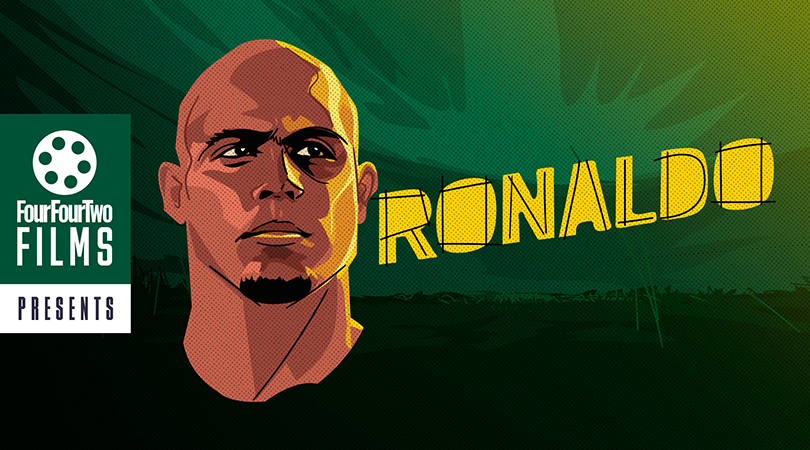A week with Nigel Pearson in Belgium: "Seeing Leicester win the Premier League wasn’t particularly enjoyable – but I also felt pride in it too"
His tenure at Leicester may be remembered for touchline scraps and press room spats, but as FFT heads to Belgium to meet the boss of Leuven, we find a man who’s calm. Eerily calm…
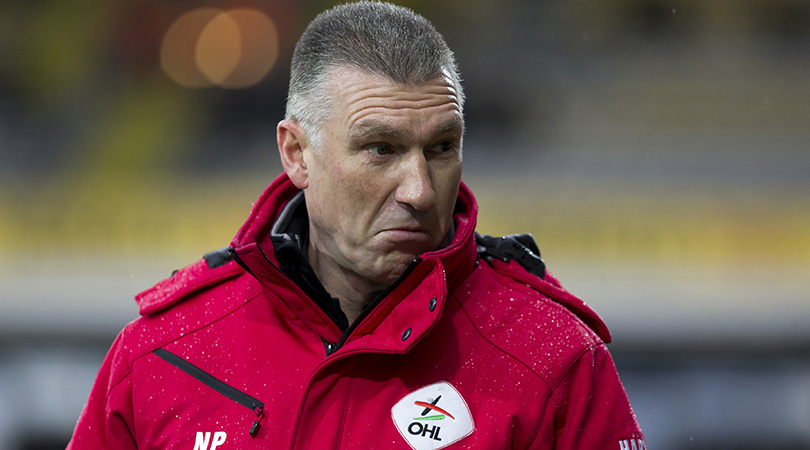
It’s Nigel Pearson’s pre-match press conference and he has a question of his own for one of the Belgian journalists facing him.
The scribe had accidentally referenced a punk-rock lyric in a question about one of OH Leuven’s fringe players: “Maybe if I was him I might think, should I stay or should I go?” Frankly, it’s a different sort of Clash than we were expecting when the former Leicester, Hull and Derby manager plonked his glasses down on the table ready to talk to half a dozen media men at the club’s training base.
Back in England, such situations have occasionally led to fireworks, but today it’s all good-natured. The journalist laughs it off, resisting any further encouragement from Pearson to break into song. Another writer then jokes that they’ve previously heard him on the karaoke, and it’s really not a good idea...
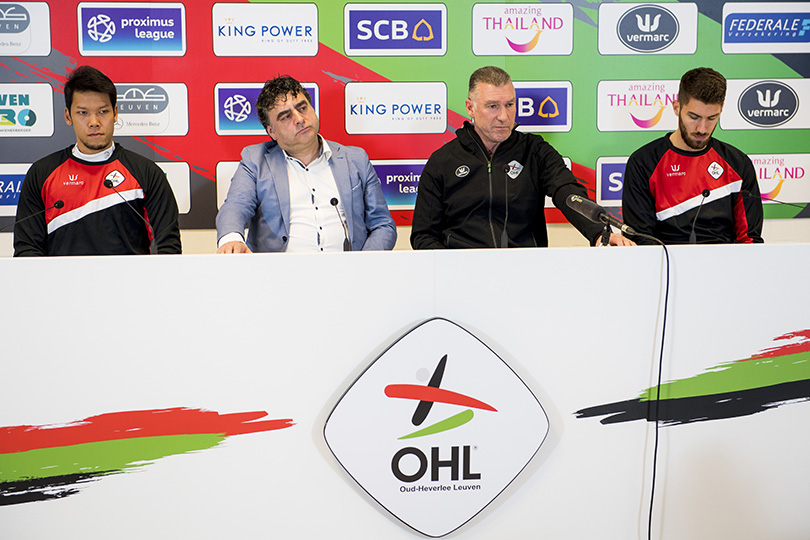
New surroundings
This is a relaxed Pearson, still keeping the media on their toes as he fends off January transfer window speculation in his inimitable style. Now he's doing it with a glint in his eye, seemingly free of the intense stress that turned some press conferences during his Premier League days into decidedly confrontational affairs.
He’s spent the morning on the training pitch, delivering instructions to his squad ahead of the weekend’s fixture with Union Saint-Gilloise. Pearson has been a boss in Belgium’s second tier since September and FourFourTwo is spending a couple of days in the small city of Leuven to find out how it’s all going.
Thankfully he’s happy to see us, warmly shaking hands before sitting down with the Belgian media, then inviting us into his office for a chat once the press conference is over.
Get FourFourTwo Newsletter
The best features, fun and footballing quizzes, straight to your inbox every week.
Because of how things finished at Leicester, it was important for us to sit down on a one-to-one basis and just chat in a sociable manner. It was important in terms of how I felt about the situation, and I think it would have been the same for Vichai
It’s the first time Nigel has managed outside England – and the move was doubly unexpected given that he’s employed once more by King Power, who fired him as Leicester boss in 2015 but didn’t hesitate to call back after buying Leuven last summer.
“I was contacted in September about whether I would be interested in working with them again,” says Pearson. “It very much came out of the blue. It wasn’t something I’d even contemplated might happen.”
Given the circumstances of his exit from Leicester – he’d kept them in the Premier League, only to be sacked that summer after a variety of off-field incidents – the first thing Pearson wanted to do was meet up with his former Foxes chairman, Vichai Srivaddhanaprabha. He was keen to establish whether the personal relationship between them could work a second time, and decided not to involve an agent in any of the discussions at all.
“That's quite unusual in today’s football climate,” he explains. “But because of how things finished at Leicester, it was important for us to sit down on a one-to-one basis and just chat in a sociable manner. It was important in terms of how I felt about the situation, and I think it would have been the same for him. It was amicable and things didn’t take long to get sorted once we’d had that chat.”
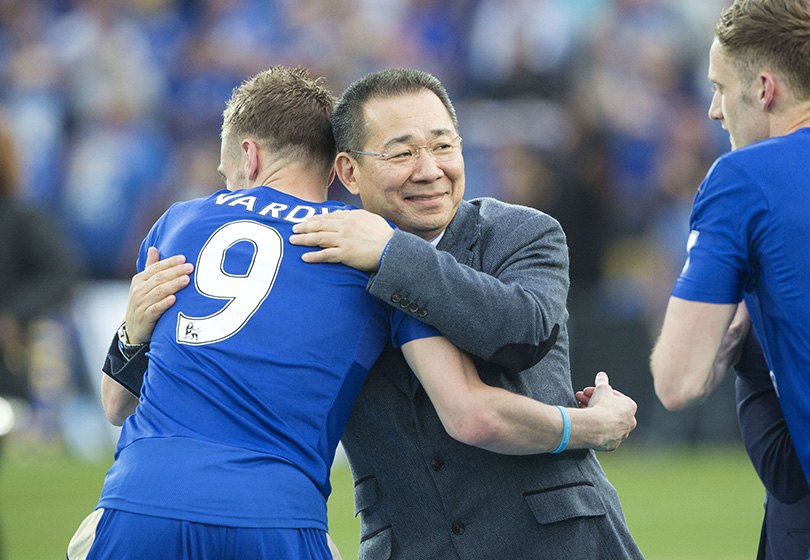
The appointment actually made a lot of sense. Pearson’s task at OHL is more or less to repeat the job he did for King Power during his second spell as Leicester manager – take the club from the second tier to the top flight, and keep them there. “There are similarities,” says Pearson. “It’s about hopefully getting back into the top division and establishing ourselves. But we’ve got to get promoted first, which is really difficult because of the format of the division.”
Pearson's not wrong – the Belgian league system is mind-boggling. The second division season is split into two halves – similar to the Apertura and Clausura system used in some Latin American countries – with the winners of each half of the season going head-to-head in a play-off for the solitary promotion place. There’s another play-off competition for a Europa League spot, involving nine teams from the top division and three from the second tier.
Pearson was unbeaten in his first seven matches in charge, but OHL were pipped to top spot in the first half of the campaign by Beerschot Wilrijk after a defeat in their decisive final match. In the second half of the season they finished third in the eight-team tournament, having lost only three of 14 matches – one against league winners Cercle Brugge, who they thrashed 7-1 in the first half of the campaign. Promotion, then, has eluded OHL this season, but Pearson has signed a three-year contract and sees the job as a long-term project at a club who flirted with relegation to the amateur leagues last season.
He’s not viewing it as a stepping stone to a job back in England. “I’ve got no intention of just coming over here and seeing how it goes,” he stresses. “It’s a chance to do something over a period of time, but you have got to get results to buy you the time to do that – that’s how the game is. We’ve not had enough wins in the second part of the season and it’s going to be difficult to get promotion this season, although we still have seven matches left.
“I’d like to be a success here, and then outside of that I don’t know. I’ve not thought too far ahead. People want me to say: ‘Yeah I’ll do it here for a while, then step to something else’, but I’m not looking at it like that. Whatever job you go into, you have to commit yourself to it, and I think there’s potential here.”
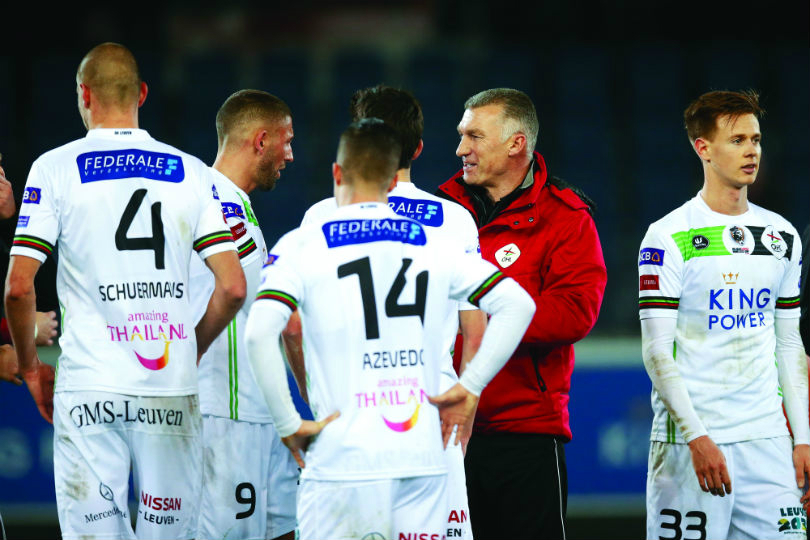
One thing is clear as FFT observes training: coaching remains Pearson’s passion. Fans are welcome to watch, and we’re joined pitchside not only by one man and his dog but one man and his two dogs. “I live locally so I’m here every day,” explains Willy Vanautgaerden.
Pearson is chuckling along with the banter between players during the rondo, and then encourages his squad as they take part in a drill focused on getting the ball out wide and putting crosses into the box. “Well done! Good!”
Training is conducted in English, which isn’t a problem for the players. Belgians don’t all speak the same language, with the country mainly a mixture of French and Dutch speakers. Among the side are defender Elliott Moore, on loan from Leicester, and Scottish forward Tony Watt, once a match-winner for Celtic against Barcelona.
I’ve got no intention of just coming over here and seeing how it goes. It’s a chance to do something over a period of time, but you have got to get results to buy you the time to do that – that’s how the game is
On a new pitch funded by the club’s owners, and laid with the help of groundsmen from Leicester City, Pearson soon sets up an 11-a-side, where he asks for a combination of passing and the odd ball over the top to stretch play – like he did with Jamie Vardy and his team-mates back in England. There’s a moment’s irritation from him when players go against his instructions and try to play the ball out from the back a tad too riskily. He’s not afraid to get angry with his troops, although the emphasis is on explaining things rather than just barking at them. The two dogs on the touchline can do that.
“I enjoy coaching,” he tells FFT afterwards. “Here I’ve probably spent more time on the training field than I have for quite a while.”
Pearson had been out of football for nearly a year before joining OHL – his previous job an ill-fated spell in charge of Derby. He lasted only nine league games before being suspended on the day of a game at Cardiff, amid reports of a breakdown of his relationship with owner Mel Morris. He departed a few weeks later, and admits it was a mistake to take the Rams job.“Yes, although it’s always easy with hindsight and they would have probably said the same thing – ‘It was a bad decision hiring him’. Let’s just call it quits, eh?”
It was a situation that left him wondering what sort of future he wanted in management. “The experience that I went through was very distasteful and I wouldn’t want to work in that type of situation again,” he says. “It makes you question certain aspects of management. You’ve got to enjoy working.”
After that and the way his time at Leicester had ended, does he see himself as having a point to prove in management? “Not really,” he says. “When you’re only at a club for a short period and things don’t work for many reasons, there’s no point wasting energy thinking about something that you couldn’t do a great deal about. Not everything you do is going to be successful, so you’ve got to reflect on why it doesn’t work and move on.
“Some of the best stuff we did as a staff at Leicester was when results weren’t happening and there was criticism, because you’ve got to try to find a way of working through that. Those are the times when you get judged.”
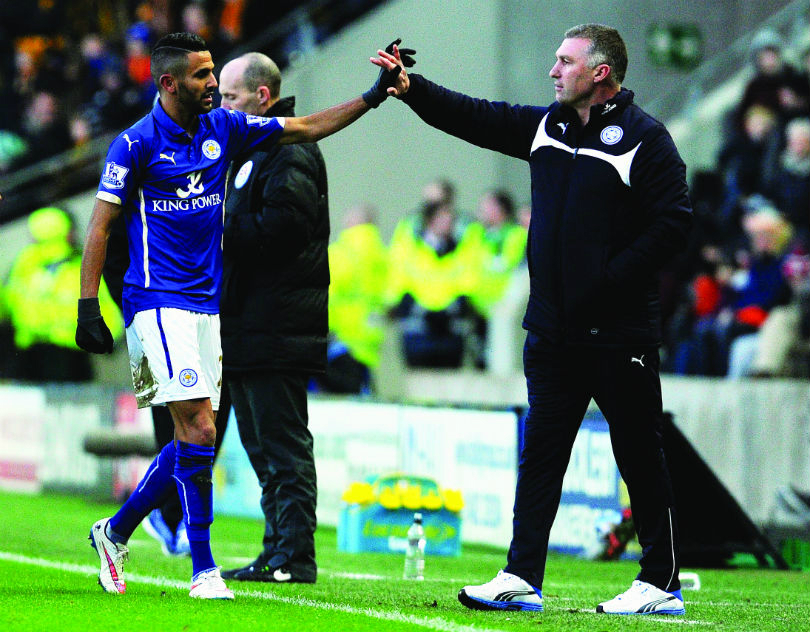
Rarely were times trickier at Leicester than during his one and only campaign as a Premier League manager. The Foxes had swept all before them on the way to the Championship title in 2013/14, racking up 102 points, but were now bottom of the top flight, seven points adrift of safety and odds-on for relegation. Pearson became embroiled in a series of incidents – a spat with a fan during a 3-1 defeat to Liverpool, then a scuffle with Crystal Palace midfielder James McArthur. Stress surely played its part – matchdays have always been his least favourite bit of management, he admits.
“I know a few managers who’d say something similar. The enjoyable part of the week is the preparation. Of course you get some satisfaction on a matchday when you can see the work you’ve done coming to fruition, and you see players and fans enjoying themselves, but matchdays can be stressful.”
Strained relationships
Tetchy post-match press conferences followed – given the tension of the game itself, was it inevitable that he was sometimes still on edge when he spoke the media?
“Yes, with the rules of the Premier League you’ve got to be in a press conference within 20 minutes of the game ending, but it is what it is,” he admits. “You can’t change what you are. You’ll see some of the most experienced managers getting emotional after matches, and that’s understandable.”
There’s a pause.
“I know where you’re going with this...” he says, sensing the subject that’s about to be raised – not so much the elephant in the room, as the ostrich. Leicester remarkably won seven, drew one and lost one of their final nine matches of the 2014/15 campaign to dodge the drop. Title-winning form. But it was what happened after that one defeat – a 3-1 home loss to champions-elect Chelsea – that’s arguably talked about more. The moment when Pearson called a journalist an ostrich after objecting to the line of questioning.
Has he ever watched the video back? “Yeah.” And what does he think when he sees it now? “You can’t change what you’ve done, so there’s no point wasting energy with that,” he says, starting to click the pen in his hand with noticeable regularity as he discusses what is clearly still a sensitive subject.
“It’s a part of my past, so whether it’s good, bad or indifferent, that’s what it is. You do things at times, reflect on them and think, ‘Maybe I shouldn’t have done that’. But if you’ve done it, you’ve done it. There’s no point wishing otherwise.”
Does it bother him that some people remember his time at Leicester for that one press conference, rather than for guiding the club into the Premier League and then keeping them there? “I don’t know whether that’s how people just remember it,” he argues. “If that’s what people remember, I can’t do anything about that. I know what I’ve achieved – I don’t really need to worry about what others think.”
Pearson’s final duties with the Foxes squad were as part of a tour to Thailand at the end of that campaign – a tour that was intended to be a goodwill visit on behalf of the club’s Thai owners but ended up mired in more controversy, this time not involving the manager himself. In June, the club decided to relieve Pearson of his duties and replace him with former Chelsea boss, Claudio Ranieri.
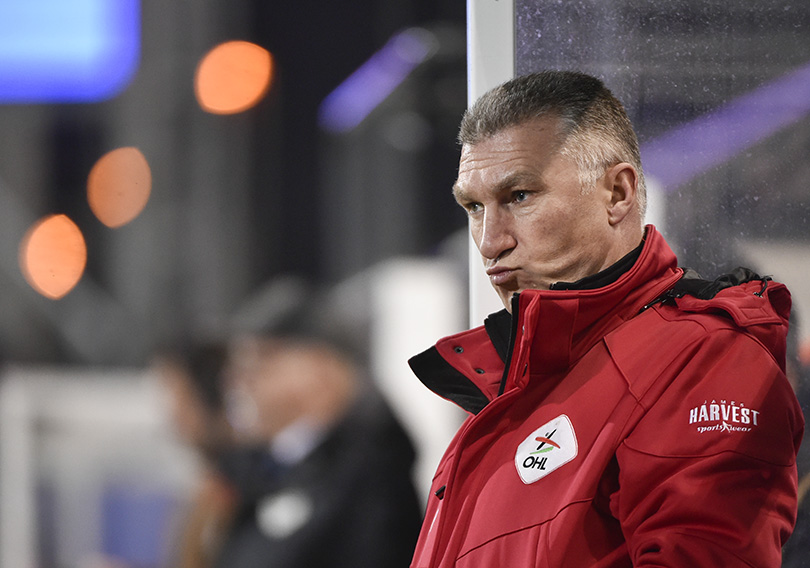
Within 12 months, Leicester had incredibly become Premier League champions, while Pearson could only watch from afar. It was a team moulded by him – he had signed Jamie Vardy, Riyad Mahrez and many more, and even N’Golo Kanté had been lined up before his departure. What was it like watching his former club go on to glory?
“It wasn’t particularly enjoyable, to be honest with you,” he admits. “But I had a sense of pride in seeing a group of players that had taken a very long time to put together achieving success. On a personal level it wasn’t always easy, but that’s part of life, isn’t it?”
He resists suggestions that he might be entitled to take some credit for Leicester’s title triumph. “Don’t put words into my mouth, that’s up to you to make those sorts of observations or not,” he insists. “For me, I know what I did when I worked for Leicester and I know my part in what’s happened there since. But apart from that, I don’t need to go on record and take credit. I don’t feel the need to do that. I know I’ve had a positive impact in most of the situations I’ve been in during my coaching career.
“There are always going to be one or two exceptions, but I don’t feel the need to justify myself or look for any public praise. I work in the way that I work, I make mistakes like everybody else, but I know what I’ve done in the places I’ve been.”
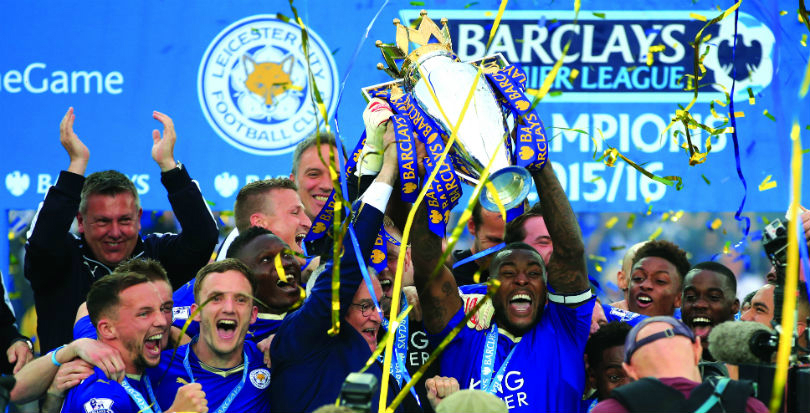
When he watched Ranieri lift the Premier League trophy, was there any part of him thinking, ‘Could that have been me?’ “No, no,” he says. “That’s a hypothetical question. Again, I don’t really waste a lot of time thinking about stuff that has got no relevance to my own life. What’s the point? People get frustrated when I come out with stuff like that – they think, ‘Well you must have thought about it?’ But no, not really. You need to be able to get past whatever happened. You need to move on to the next part of your life.”
Pearson moved on by spending time in the great outdoors, either side of his spell with Derby. Long-distance walking has always been a big passion – one of his treks was along the Ridgeway, a national trail that spans 87 miles between Wiltshire and Buckinghamshire. “I just go and disappear for a week – I think my wife quite likes it from time to time,” he laughs.
“It’s a bit of time to just get away from day-to-day life. Not only is it good exercise, but it’s not bad for your peace of mind. And it’s amazing that when you put on a hat and some glasses, people don’t recognise you! I can go off backpacking and no one gives me a second glance, which is rather nice.”
However, his love of walking led to an infamous incident in Romania in 2011, when he was attacked by a pack of dogs. He managed to fend them off with his hiking stick before diving into nettles to escape, but it was a scary moment - although he rolls his eyes a little when asked to tell the story in his own words. “Bloody hell, is this resurfacing again?!” chuckles Pearson. “I was just walking by myself in the Carpathian mountains. When you’re up in the high pastures in the summer, there are these dogs. They weren’t wild. They are kept with flocks of sheep to protect them from bear attacks, but you’ve got to be careful with them. I got into a very tricky situation that I was able to get out of, but there have been fatalities and some very nasty occurrences in the past.
“For sure it wasn’t a pleasant experience, and because I’ve been daft enough to share it, it’s something I keep getting asked about. It’s one of those life experiences that some people would say is a good yarn. But I don’t look at it in any sort of flippant way and it’s not something I’m proud of – it’s just something I experienced that I wouldn’t want to experience ever again.”
I don't think about whether it could have been me with Leicester in 2016. You need to be able to get past whatever happened. You need to move on to the next part of your life
A different way of life
There are no such dangers in Belgium. “Not around here, fortunately,” says Pearson. “I’ve not had many chances to go walking – to be honest I spend most of my time here at the training ground. But it’s good for cycling. I’ve got a couple of bikes and I get out and about.
“Where I live it’s quiet – a village about 10km from here – and I feel at home. Since I arrived I’ve been back to the UK twice, and once was over Christmas. I’ve not come here to flit backwards and forwards, I’ve come here to live. I have a Belgian ID card and you have to get into the local culture. I’ve heard of people who’ve worked abroad, then spent all of their time living in hotels. I can’t do that.”
The quiet life suits Pearson, but moving to Belgium was never about getting away from it all. It was the fulfilment of an ambition – he said no to jobs in England before accepting OHL’s offer.
“I’d had discussions about several jobs that either didn’t happen for me or weren’t things I was that interested in,” he explains. “I wanted something a bit different after my previous job. Something where I felt I could enjoy myself, a challenge. I like anonymity, but that’s not what this is about.
“I needed something that was going to stimulate me. For years, I’ve always had aspirations to work abroad at some point. Early in my coaching career I worked for the FA, working with the under-16s through to the under-21s, and I would spend a lot of time working at tournaments and travelling abroad to see games. It opens your eyes. I wanted a different experience.”
Whether working abroad becomes more difficult for English bosses after Brexit, only time will tell. “God help us, yeah...” adds Pearson. “I’m Remain, absolutely. But unfortunately Brexit’s going to happen. I don’t even watch any of that stuff from afar now, to be honest. We get BBC News over here and I read the papers from time to time, but even back at home I don’t think it’s particularly clear what’s actually happening, is it?”
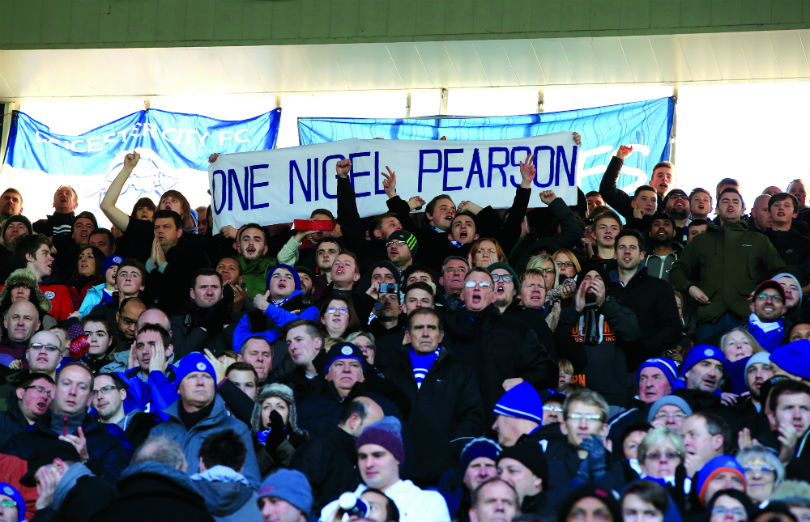
Pearson is hardly in exile in Leuven – his wife splits her time between England and Belgium, and he received a visit at a recent match from 100 Leicester fans, all singing his name. Did that mean something to him? “Yeah that was great,” he says with a laugh. “Some of our fans are going over there too. It’s a good initiative.”
But while Leicester have provided OHL with some assistance, Pearson is eager to point out that the Belgian side aren’t seen as some sort of feeder club. “The owners are an obvious link with Leicester and it’s natural for people to talk about the two clubs in the same breath,” he explains. “But it’s important we establish ourselves with our own identity and keep the identity the club already has – and that’s OHL.”
A potential return?
Pearson has been tempted back to the Leicester job in the past. After departing for Hull during Milan Mandaric’s reign in 2010, having lifted the Foxes out of League One as champions and then immediately steered them to the Championship play-offs, he agreed to return 17 months later. Now that he’s being employed by King Power again, could a third spell occur one day?
“I would think that’s highly unlikely,” says the 54-year-old, as our chat draws to a close and we let him get on with his day. While he never looked entirely at ease talking about the turbulent times at Leicester, he has been friendly throughout and offers a handshake once more as we depart, before putting his glasses back on and attending to business on his office laptop.
Two days later and it’s matchday at OH Leuven’s smart home ground, renamed the ‘King Power at Den Dreef Stadium’ following the summer takeover. We’ve made our way out onto the concourse, where Jochem Sterckx is among the supporters supping Stella Artois, the beer brand founded in Leuven in 1926.
“I knew a bit about Nigel Pearson before he arrived because I follow the Premier League and the lower divisions in England – and also I play Football Manager!” says Sterckx. “I didn’t know his whole resume, or about any press conferences he had done, but he was introduced as the man who took Leicester from the third division to the Premier League. I can imagine if you’re the owner of the club you believe, ‘OK, maybe he will lift this club up’.”
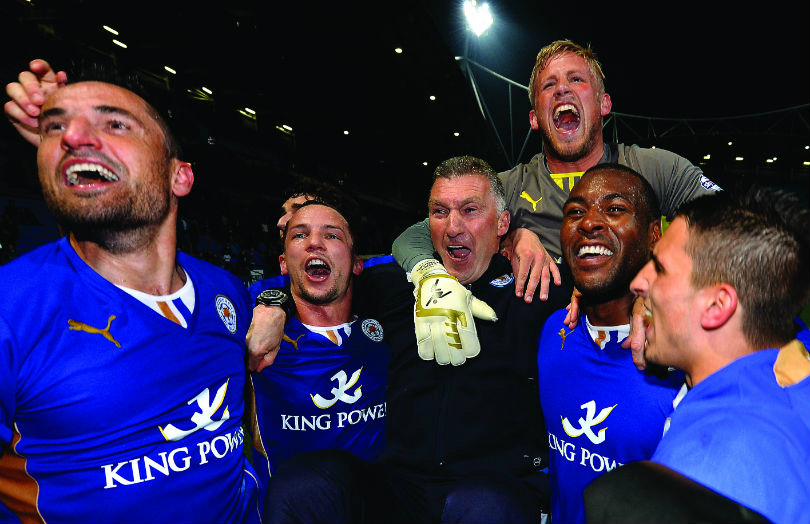
Around 3,700 fans are here for the match against Union. Pearson is prowling the touchline, offering claps of encouragement. OHL need to win to keep their slim promotion hopes alive, and they’re in front early on when former Motherwell striker Esteban Casagolda sweeps home a left-wing cross. It’s a move reminiscent of the ones Pearson worked on at training a few days earlier.
The manager is hugging his assistants on the touchline when goalkeeper Nick Gillekens makes a crucial save to preserve the home side’s lead, and 15 seconds later their left-back Derrick Tshimanga surges forward to make it 2-0.
Pearson offers a thumbs-up to the crowd on the way to the dressing room at half-time, and it’s 3-0 soon after the interval as new signing Samy Kehli sets up Nikola Storm to put the game beyond the visitors. Supporters sing along to Sweet Caroline with gusto and then cry: “We want four!” after Elliott Moore sees his strike ruled out for offside. The English chant is not for Pearson’s benefit – fans of both teams largely sing in English. “Your support is f**king s**t!” Union fans cheekily chant during a lull in the atmosphere. The visitors pull one goal back but OHL run out relatively comfortable 3-1 winners to go third in the table – six points off top spot with six games left.
Pearson heads off to the media room for a press conference next to his opposite number, as is the tradition in Belgium. Both managers are invited to give their thoughts and Union’s Marc Grosjean kicks things off, speaking at length in French as Pearson sips his coffee, unaware of what’s being said. When it’s his turn, he talks slowly and deliberately, but without a Steve McClaren foreign accent.
“I think we deserved to win the game – we created opportunities throughout,” he opines. “It was a game that we needed to win. There’s not a great deal of margin for error at the moment. It’s going to be very tough for us but the win keeps us in with a possibility.”
Pearson speaks for three minutes uninterrupted, covering off all likely questions. When he’s done, there’s silence in the room – not one reporter asks a question and the bosses bid a cordial farewell. It’s all rather different from the cut-and-thrust of a Premier League press conference, and Pearson doesn’t look entirely unhappy about that.
In Leuven, he’s largely been able to concentrate on the key part of football management he actually enjoys: managing footballers. After the events of his previous two jobs, that suits him just fine.
This original version of this feature appeared in the March 2018 issue of FourFourTwo. Subscribe!

Chris joined FourFourTwo in 2015 and has reported from 20 countries, in places as varied as Jerusalem and the Arctic Circle. He's interviewed Pele, Zlatan and Santa Claus (it's a long story), as well as covering Euro 2020 and the Clasico. He previously spent 10 years as a newspaper journalist, and completed the 92 in 2017.
